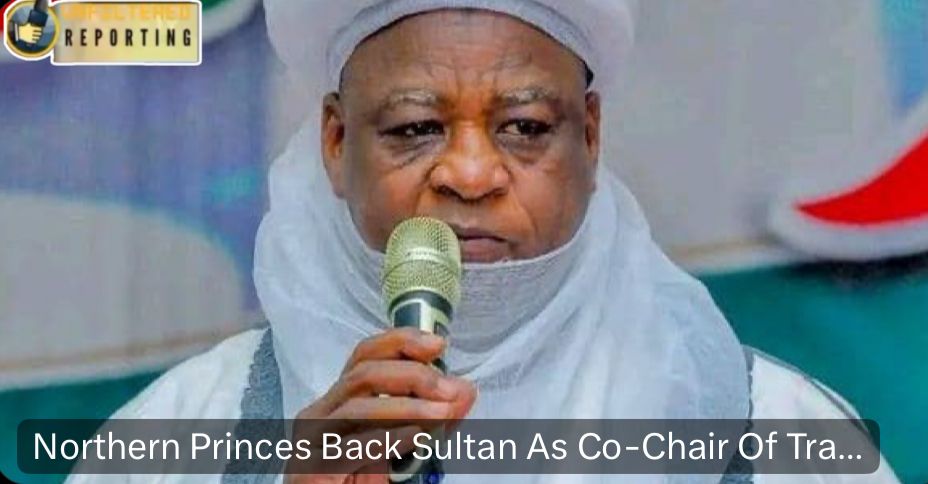Northern Princes Declare Support for Sultan Abubakar as Co-Chair of Traditional Rulers’ Council

Northern princes have declared their full support for the Sultan of Sokoto, Muhammadu Sa’ad Abubakar III, as permanent co-chairman of the proposed National Council for Traditional Rulers of Nigeria, amid growing opposition from other regional groups.
The endorsement was made by members of the In Kaji Tambura Foundation, a coalition of Northern royal descendants, during a press briefing in Gombe on Tuesday. Speaking on behalf of the group, Prince Mahmood Aminu Adamu described the Sultan as the most qualified figure for the role, citing his spiritual influence and leadership of the largest network of emirs across Northern Nigeria. The statement comes as controversy deepens over the National Council for Traditional Rulers Bill currently before the Senate, particularly the provision that names the Sultan and the Ooni of Ife as permanent co-chairs. Critics, especially from the Middle Belt Forum, argue that such a provision marginalizes other traditional institutions and could disrupt Nigeria’s secular structure. The Forum has also warned that kingdoms in the Middle Belt region such as the Tiv, Igala, Nupe, and Jukun predate the Sokoto Caliphate and should not be sidelined in national traditional leadership. In their response, the Northern princes described the Middle Belt Forum’s position as lacking historical depth and contrary to the objective of national unity. They said the Sultan’s position as a unifying figure and advocate of interfaith peace makes him a natural fit for the leadership role. The group stressed that the Sultan has long served as a stabilizing force, not just in the North but across the country. Meanwhile, the Middle Belt Forum has threatened to mobilize resistance to the bill if passed in its current form, including withdrawing participation and forming an alternative traditional council. Several other regional and ethnic groups, including the Ijaw National Congress and Ohanaeze Ndigbo, have also expressed dissatisfaction with the proposal, citing fears of marginalization and imbalance. The bill has already passed second reading in the Senate and is currently being reviewed by the Senate Committee on Establishment and Public Service. As lawmakers prepare for further deliberations, the debate over the council’s leadership structure continues to spark national conversation on equity, representation, and Nigeria’s complex balance of tradition, religion, and federal unity.








